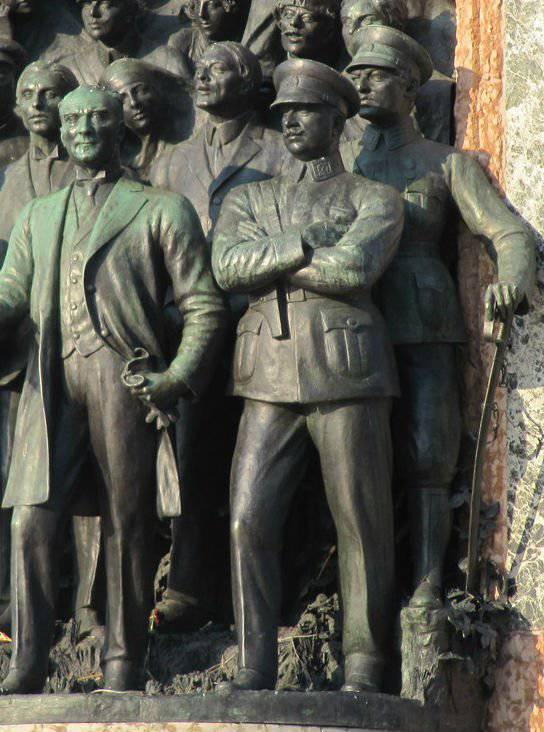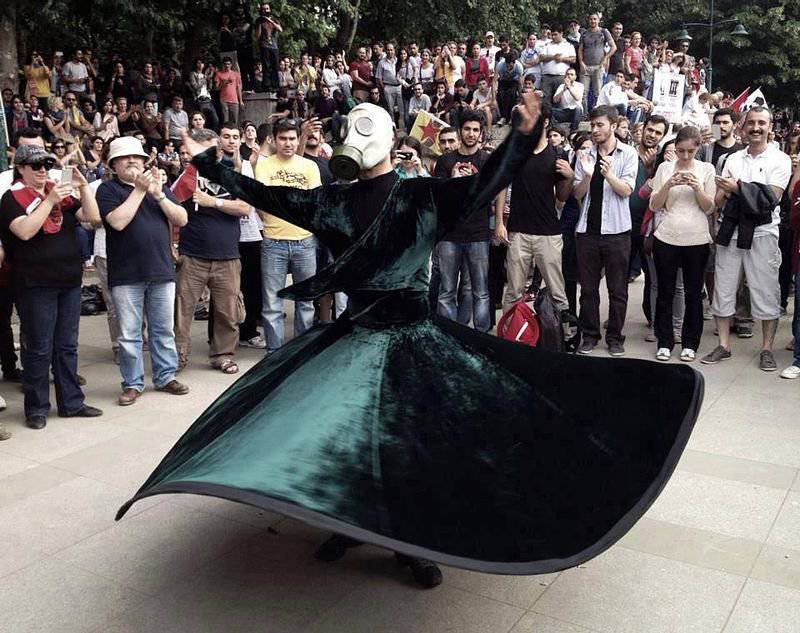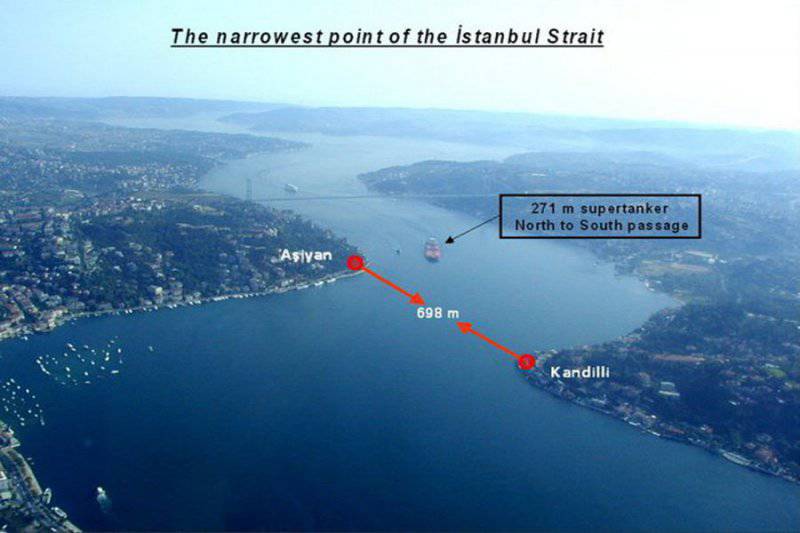A country with which we have not been fighting for a hundred years. Turkey, ex-adversary and possible ally
After that, the Russian troops were officially withdrawn to the territory of Russia, and only the Armenian and Georgian volunteers opposed the regular Turkish army.
Even then, in December of 1917, Russia was in the hardest economic and political crisis, which literally one week after the events in the Caucasus would grow into the formation of the first “white” unit - the Don Volunteer Army.
Turkey will suffer the same fate: despite significant concessions to Bolshevik Russia under the terms of the signed Brest Peace, the Ottoman Empire will not survive the First World War either, losing Iraq and Syria and almost dying as a result of the Peace of Sevres and the intervention of Greece.
Both Russia and Turkey will no longer fight in the twentieth century, moreover - today the figures of Kliment Voroshilov and Mikhail Frunze stand on the left of Mustafa Ataturk, the founder of the modern Turkish state, on the “Monument of Independence” standing on the central Taksim Square in Istanbul.

This is not just Ataturk’s whim: the participation of a new, Soviet Russia in building an independent Turkish state cannot be overestimated. It is the delivery weapons and food in the difficult moments of 1920 – 1922, the young Turkish Republic was saved from final collapse, and cooperation between the USSR and Turkey in 1920 – 1930-s developed in many directions.
It was then that the Republic of Armenia was divided between the future Soviet Union and Turkey: the communist uprisings in Transcaucasia were largely due to the non-advertised support of Turkey, but along the way, the issue of the borders of independent Armenia that had not yet been resolved after the collapse of the USSR arose.
In many ways, it was precisely this cooperation that determined the very reserved position of Turkey during World War II: even when German troops stormed the Caucasus Mountains with might and main, Turkey respected the old treaty of peace and neutrality signed with Soviet Russia back in 1921 year.
The current position of Turkey in the existing world order is largely determined by the results of the Second World War: unlike Eastern Europe, which completely fell into the orbit of influence of the USSR, Turkey, since the beginning of 1950-s, was fully incorporated into the orbit of the NATO military bloc.
Turkey could well have been one of the founders of the NATO bloc, but this was hampered by the then strained relations with its long-standing Turkish rival Greece, with the result that both countries were admitted to NATO only after the resolution of the Turkish-Greek contradictions.
However, Turkey, despite its inclusion in the NATO bloc system and the country's penetration into the zone of American influence, could not solve the mass of political and economic problems that it had inherited since the collapse of the Ottoman Empire and attempts at its actual elimination under the terms of the Treaty of Sevres.
Beginning in the middle of the 1950, tensions in the Greek-Turkish relations began to grow and poured first into the pogroms of the Greeks in Istanbul in 1955, and then, in 1960, the so-called “Cyprus crisis” broke out, caused by the desire of the island Cyprus, in which since ancient times there was a mixed Greek-Turkish population, to become part of mainland Greece.
As a result, the Cyprus crisis was never resolved, resulting in a military coup of the Greek junta, which occurred on the island of July 15 1974.
After this coup, Turkey "temporarily" occupied the northern third of the island. Subsequently, the military junta in Cyprus was deposed, but irreparable harm to the Greek-Turkish relations was already inflicted, and the Republic of Northern Cyprus remained unrecognized by the world community, the oldest state to date.
In addition, it must be said that similar processes of “interrupted integration” took place in Turkey’s campaign into the economic union of Europe.
Turkey was one of the founders of the Council of Europe in 1949. However, since then the country has been standing in 65 for years literally in the “EU's waiting room”, and the question of Turkey’s membership in the European Union is postponed year after year. Despite the formal statement of the Queen of Great Britain Elizabeth II that “Turkey plays the role of a bridge between the West and the East at a critical time for the EU and the whole world,” the decision to admit Turkey to the European Union today is not made at the level of the ruling persons.
Turkey in the European Union does not want to see the countries of the “Root Europe” in the first place, and first of all Germany and France. It is to the French President Sarkozy that the statement is that “Europe has certain borders, and not all countries can become its full members. This also applies to Turkey, which has no place in the European Union; unlimited expansion of the EU could lead to the destruction of the European political union ”, which still leaves Turkey on the EU bench.
It is in this political and economic landscape that relations between modern Russia and Turkey are developing. The Armenian, Greek, Cypriot, and the Kurdish and Syrian-Iraqi (Islamist) problems that have been added in recent years are a real “belt of fire” around the still stable Turkey. It is difficult to say where modern Turkey has no problems on its borders: with all its neighbors, Turkey has a relationship of varying degrees of tension.
Moreover, the policy of the EU and the United States, as the first violin of the NATO bloc, does not at all contribute to the stability of the Turkish state: pedaling the issue of the Armenian genocide and the borders of Armenia (and, as a result, putting the legitimacy of the Turkish state indirectly into question), freezing the Cyprus conflict, and now and creating a hotbed of tension in Syria, which eventually degenerated into a monster of the Islamic State, the West eventually created a very narrow corridor of opportunities for Turkey.
Moreover, by itself, the dynamics of Turkey’s development threatens to easily take it out of this already inconvenient corridor: the growth of its own population and the ever-growing need for energy makes the country very vulnerable to “orange” technologies. With the slightest energy or economic crisis, Turkey can very easily get hundreds of thousands of protesters across the country, as a series of recent civil unrest has shown.
For two years now, such unrest has flared up, then subsides around the seemingly routine matter of reformatting the same Taksim Square in Istanbul.

The formal reason for the unrest was the cutting down of the Gezi park zone, located on Taksim Square. However, already from the first day of the unrest, against Turkey, the full range of activities of the “orange scenario” was included, which so far, fortunately, did not lead to the final destabilization of Turkey.
But back to the issues of energy and geo-economics.
The importance of Turkey as a “bridge between Europe and Asia” has always been recognized by all world players. The “bridge” here must be understood in two ways: on the one hand, it is on Turkish territory that the complex of the Bosphorus and Dardanelles straits is located, which is the bottleneck in which water separates Asia and Europe. On the other hand, it is the Turkish straits that connect the ports of the Black and Azov Seas and the system of the great rivers of Europe with the World Ocean by the shortest cheap sea transport.
Turkey’s control of the straits zone has always been a stumbling block in all international treaties and conflicts. It must be said that one way or another, around the situation of ensuring control over the straits, three conflicts were fought that the Russian Empire waged with Turkey: the Crimean War, the Russian-Turkish war of 1877 – 1878 and the First World War.
Following the 1920 events, the strait zone remained under Turkish control - attempts to establish an international (primarily Anglo-French) protectorate over it failed. However, the “relics” of this historical story are also present today in Turkey’s relations with the outside world.
Today, despite the formal sovereignty of Turkey over the straits zone, they are under the effect of the so-called “Montreux Convention” adopted in 1936, which in many respects applies to the territorial waters of Turkey the provisions of international maritime law, including the free passage of ships of all classes and types , including oil tankers and gas carriers.
At the same time, Turkey, realizing the importance of the straits for the country's economy, but also realizing that international maritime law severely limits Turkey’s control over the transit of goods, including energy, through the Turkish straits zone, has taken a number of restrictive steps in the straits zone in recent decades.
These restrictions formally concern the safety of the wire through the straits of large-tonnage vessels and vessels carrying dangerous goods, but first of all they beat precisely the transportation of energy goods - oil and liquefied natural gas.
For example, an LNG tanker from the Mediterranean to the port of Yuzhny must go through the Bosphorus and Dardanelles straits twice, wait for each strait from the 3 hours (Dardanelles) to 1 – 2 days (Bosphorus) and pay for the expensive pilotage, force blocking of the strait. For tankers and gas carriers, the Bosphorus strait is blocked in one of the directions, and the tanker goes through the Bosphorus right in the middle of the strait (usually the movement in the Bosphorus is “two-way”). Here’s how it looks in real life - “Stop, Bosphorus, the tanker is coming!”:
Due to these circumstances, Turkey itself is building, for example, its LNG regasification terminals in the Aegean or, in extreme cases, in the Sea of Marmara. So it turns out just cheaper. For other Black Sea countries and, first of all, Russia, an attempt to build an additional oil or gas terminal on the Black Sea will subsequently lead to a bottleneck in the strait region, which then cannot be expanded by any efforts, even with the active desire of the Turkish side. For the motivation for limiting the movement of tankers and gas carriers through the straits by security requirements sets equal treatment for all participants in the maritime trade through the Bosporus and the Dardanelles.
Around this geopolitical and geo-economic landscape of Turkey, namely: rings of instability around all the western, eastern and, especially, southern borders of Turkey; the concept of a “bridge between Europe and Asia”, converging on the crossroads of the sea straits and the land isthmus broken by them; internal instability of the country itself and the calm world of the last century in relations with its powerful northern neighbor - and our story will be built about the future of the “Turkish South Stream”, which today has risen to full growth as an alternative to the perishing Ukrainian gas transportation system South Stream gas pipeline.

Information